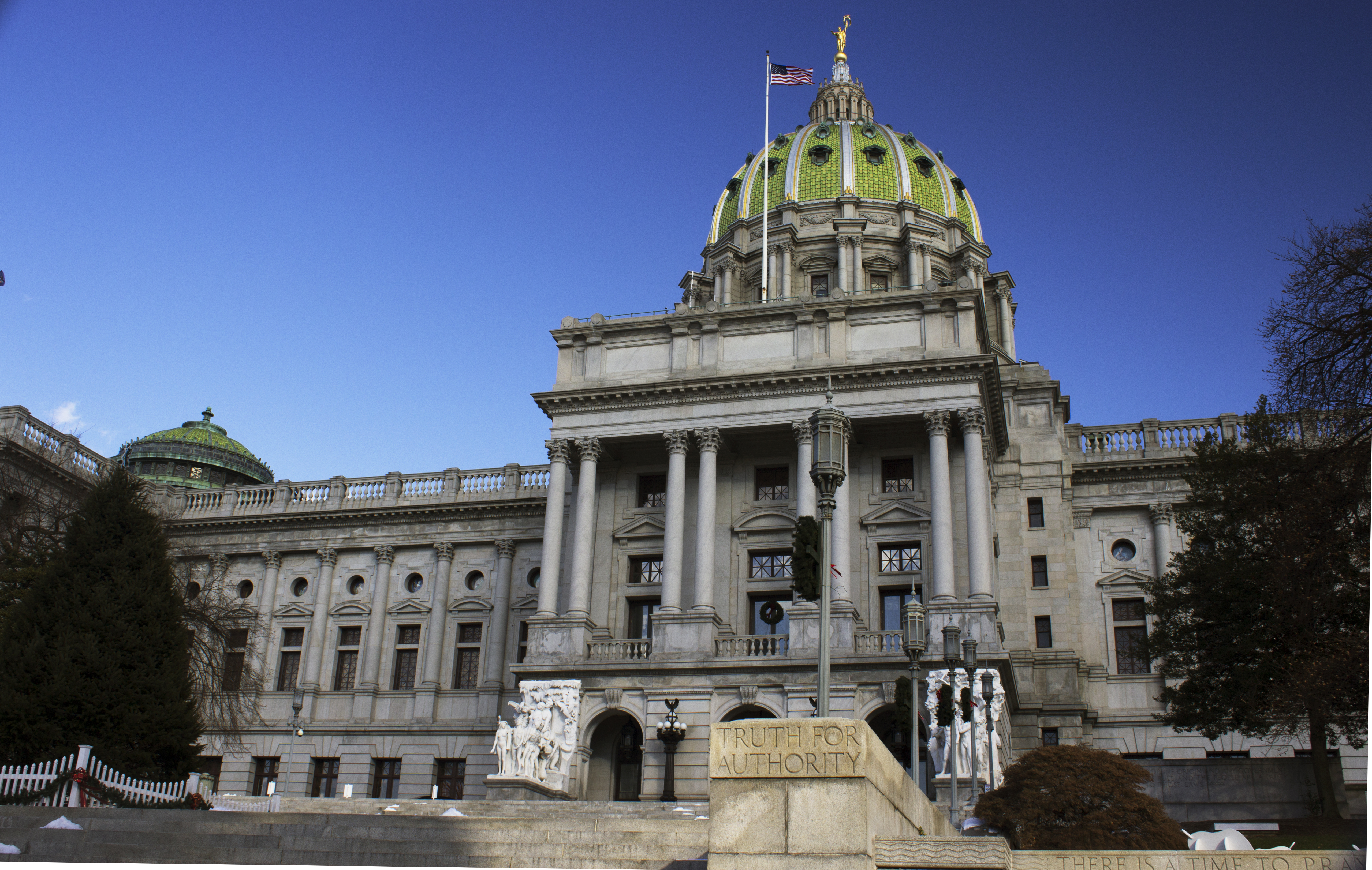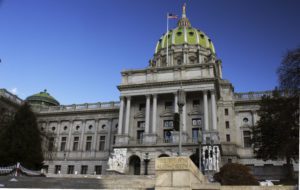
On Friday, Governor Wolf and the Department of Environmental Protection issued a ban on the issuance of water and earth-moving permits and approvals for Energy Transfer pipelines in Pennsylvania.
In response, Joseph Otis Minott, Esq. Executive Director and Chief Counsel of Clean Air Council, issued the following statement:
“The ban on new permits to Energy Transfer is the kind of leadership on pipelines that the public has been waiting for from Governor Wolf. This was a crucial step to protect the public from a company with a track record of environmental destruction, public safety disasters, and deception. The next logical step is to stop the operation of ET’s Mariner East pipelines for good.”
Click here to read the full press statement from Governor Wolf
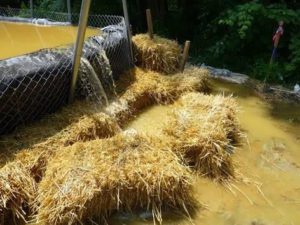
After a slew of legal filings, briefs, and hearings before two different courts, the Environmental Hearing Board, on Monday, April 16th, ordered stronger protocols for responding to and preventing drilling fluid spills on the Mariner East pipelines. Clean Air Council, Delaware Riverkeeper Network, and Mountain Watershed Association took Sunoco and the Pennsylvania Department of Environmental Protection (DEP) to court for violating a previously agreed-upon version of the protocols, and then quietly modifying those protocols without the input of the Council, other organizations, or the court.
The history of these protocols, called the Horizontal Drilling Inadvertent Return Assessment, Preparedness, Prevention and Contingency Plan (or HDD Plan for short) is somewhat complicated. The HDD Plan was originally part of the water permits DEP issued to Sunoco for the Mariner East 2 pipelines in February 2017. In August 2017, after a torrent of drilling fluid spills and drinking water contamination incidents made clear that the February 2017 HDD Plan was failing to protect the public and the environment, Clean Air Council and its partners filed an emergency motion with the court. This resulted in the court shutting down Sunoco’s drilling Mariner East 2 drilling operations until the parties agreed to improvements to the HDD Plan in August 2017. Fast forward six months, and DEP and Sunoco walked back some of those protections in a side agreement. Clean Air Council and its partners filed another emergency filing and have ultimately secured the most protective HDD Plan yet. And this time the stakes are higher if there are further violations.
The new HDD Plan accomplishes several important things. First, it now applies to all drilling methods that could result in drilling fluid spills. Second, professional geologists must be involved in determining whether it is safe to proceed with drilling after a spill. The new HDD Plan lays out specific requirements for what the professional geologist must investigate and present to the DEP. DEP then must find that any plans for continued drilling at the spill site adequately protect the public and the environment before it allows drilling to restart. Groundwater protections have been spelled out in detail so there can be no ambiguity in how they are applied; they are key because of the damage Sunoco’s operations has already caused to drinking water supplies and the continuing nature of that threat. Requirements for notifying DEP and the public about drilling incidents have also been improved.
There will also be increased transparency so landowners and other concerned members of the public will be better able to track any future spills that may arise: Reports prepared by Sunoco’s geologists will be shared with Clean Air Council and its partners. DEP’s documentation of spills on its website will be expanded, made uniform, and include more detail about spill locations–a key piece of information that had previously been missing.
The new HDD Plan is comprehensive, strongly protective, and scientifically rigorous. Perhaps just as important, the Environmental Hearing Board has made it crystal clear that it will not tolerate Sunoco and DEP trying to change it behind the backs of the public again. Even with these improvements, Clean Air Council is under no illusion that the new HDD Plan will be a silver bullet against all future problems and we believe it is still important to keep a watchful eye on construction operations.
You can view the new, April 2018 version of the HDD Plan here
Photo by Faith Zerbe/Delaware Riverkeeper Network
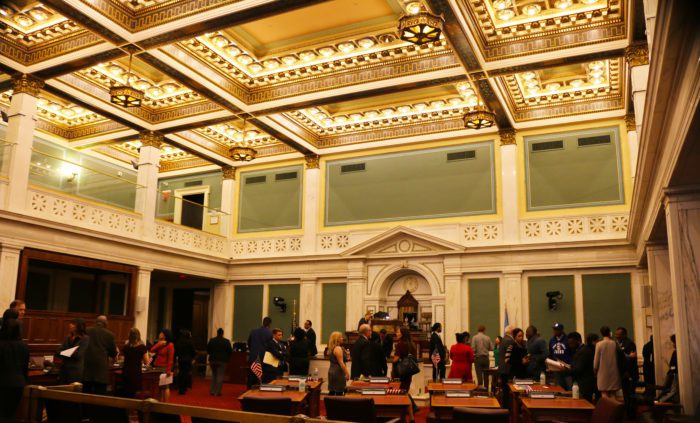
On Thursday, Councilman Mark Squilla, Chair of the Streets and Services Committee, introduced three bills on the Council floor proposing two new bike lanes, and eliminating parking along Torresdale Avenue where the Pennypack Trail crosses in Holmesburg.
This came a day after the Streets and Services Committee moved forward on the bills. According to Plan Philly, City Spokesman Mike Dunn told them in an email that he hopes the lanes will be open by the end of the year.
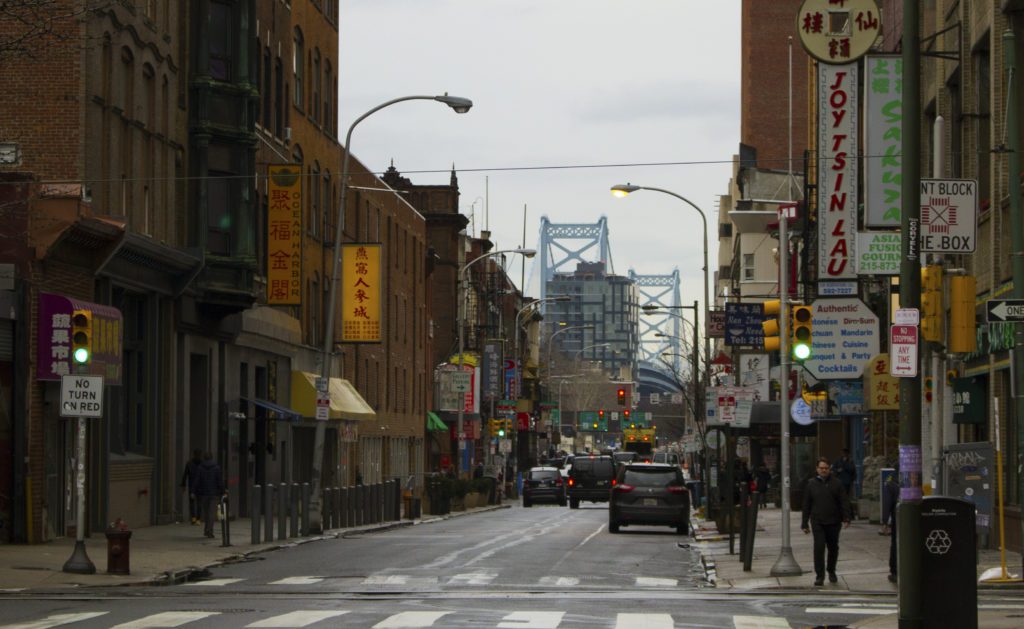
Race Street in Chinatown
One of the proposed bike lanes would be installed along Race Street between 8th and 5th streets in Chinatown. This particular corridor is heavily trafficked, especially during rush hour, with vehicles headed toward the Ben Franklin Bridge. Race Street turns from three to four lanes that are not clearly marked, adding to potential driver confusion.
The new lane would be parking protected from 8th to 6th, and would also create a much safer connection between Chinatown and Franklin Square, which is one of the only green spaces in the neighborhood.
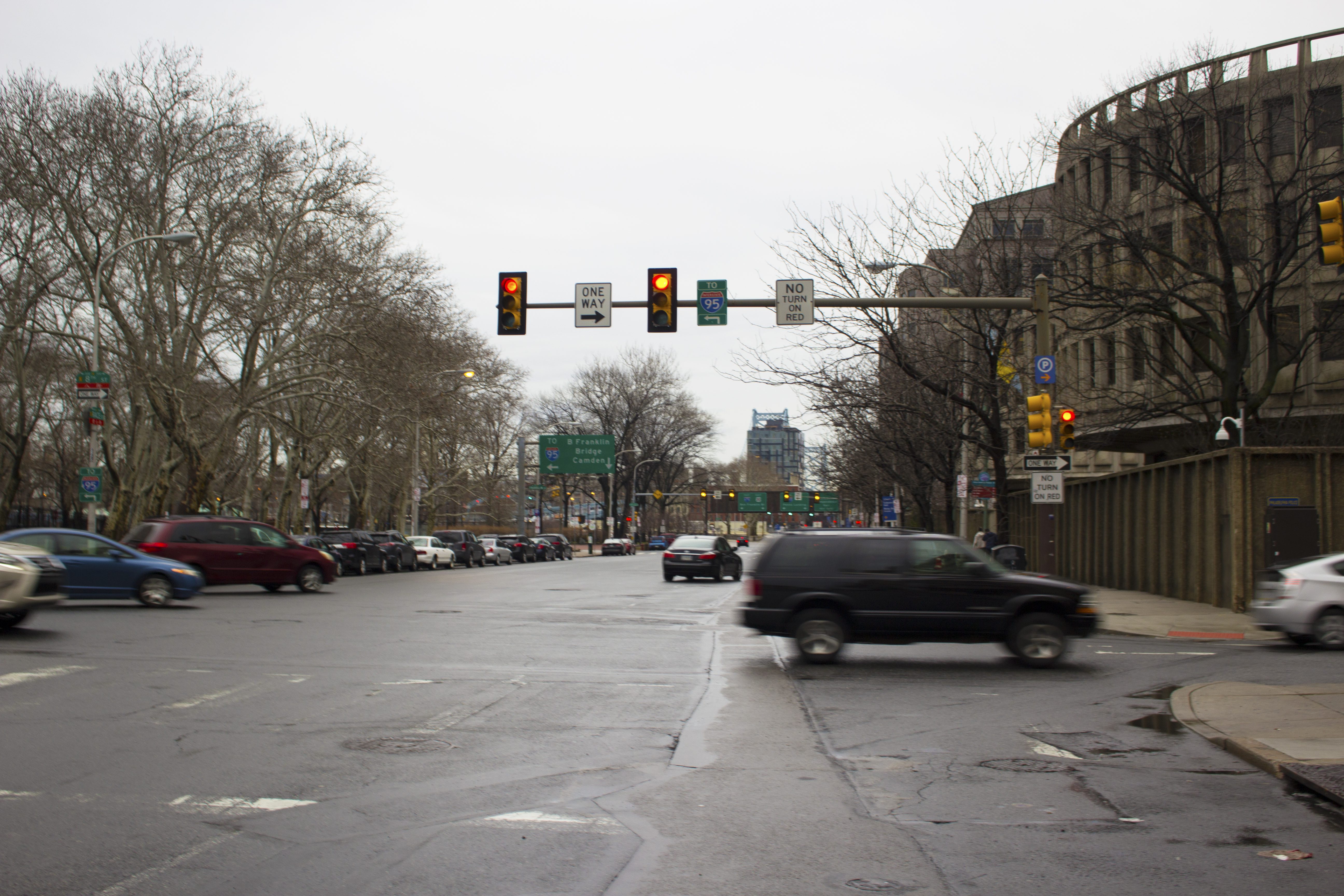
Race Street at 8th Street looking East
The second bill is to install non-protected bike lanes in both directions along Island Avenue and Enterprise Ave in Southwest Philadelphia near the airport. These lanes will allow cyclists who work in this business and industrial area a safe path from nearby transit stops like the Eastwick Regional Rail Station.
The third bill, proposed in committee by Councilman Henon, removes parking along the 8100 block of Torresdale Avenue in order to allow Pennypack Trail users a clear place to cross the road. This is a wooded stretch of Torresdale Avenue is a key crossing point of the 14.4 mile trail that runs from Huntingdon Valley in Montgomery County all the way to Holmesburg in Northeast Philadelphia.
We spoke with Councilman Squilla briefly outside City Council chambers. “Councilman Henon introduced a bill, and we’re strongly in favor of the bill to allow the trail to continue,” Councilman Squilla said.” “I think it’s a great way to have more open space.”
All three of these are key to the success of Philadelphia’s Vision Zero plan. Safe connections like the Pennypack Trail at Torresdale Avenue will allow people to pursue alternative modes of transportation, and ease the pollution and congestion cars produce every day.
“This just lends the City’s upward motion to keep people who have different modes of transportation and ways of getting to different locations through this trail connector which is a great thing for not only the City but hopefully throughout the Commonwealth,” Councilman Squilla said. “Any time you can have dedicated trails, and people where they are put in a place where it’s safer to transverse, it definitely will help with our plan for Vision Zero.”
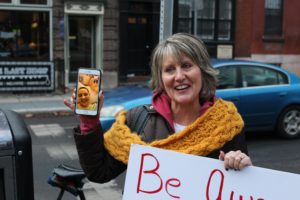
Exactly 17 days passed since Emily Fredricks was struck and killed by a private garbage truck while riding in the bike lane along Spruce Street before another cyclist was again struck by a turning truck while riding in a bike lane. This time the crash occurred near 13th and Pine Streets, just a couple blocks from where Fredricks was killed, and is once again igniting the call for more protected bike lanes throughout Philadelphia.
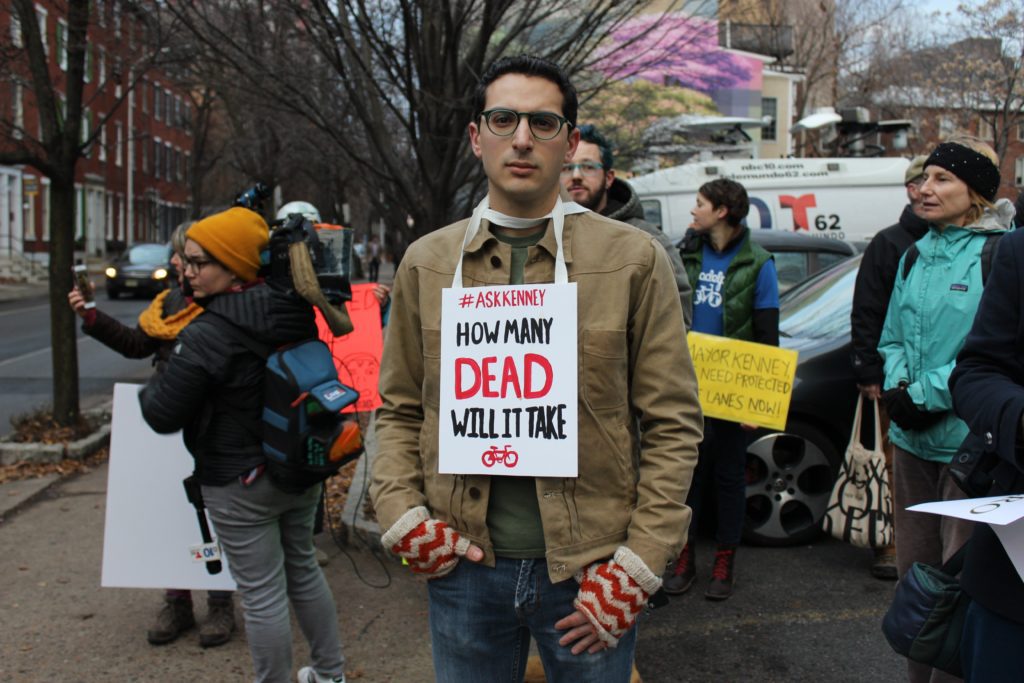
This morning, over 100 people gathered today to again form a human barrier between traffic and the bike lane along 13th Street, and show support for Becca Refford, 24, who was commuting to work when she was hit. Refford waved and smiled at the people who made the human bike lane from her hospital bed via Facetime.
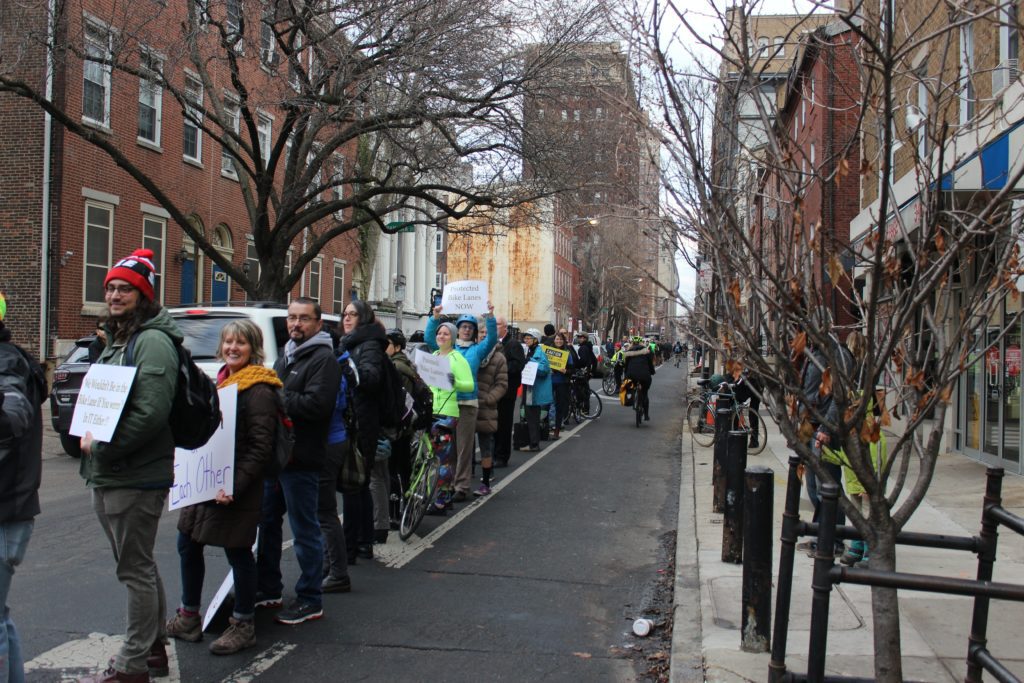
Another serious crash so soon after the death of Emily Fredericks should make clear that paint-buffered bike lanes are not good enough protection on the most used, high traffic streets in Philadelphia.
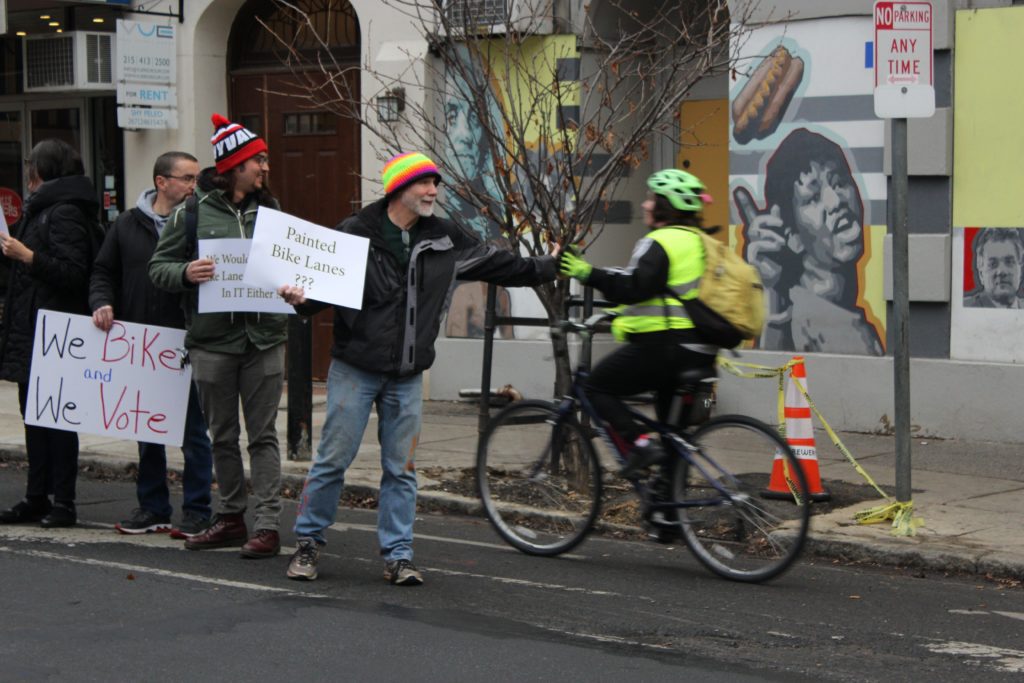
Last week, the City took a small step by committing to a short section of protected bike lanes on South Street and 27th Street near the South Street Bridge. Unfortunately this is a compromise from the original plan to include a protected bike lane along Lombard Street as well.
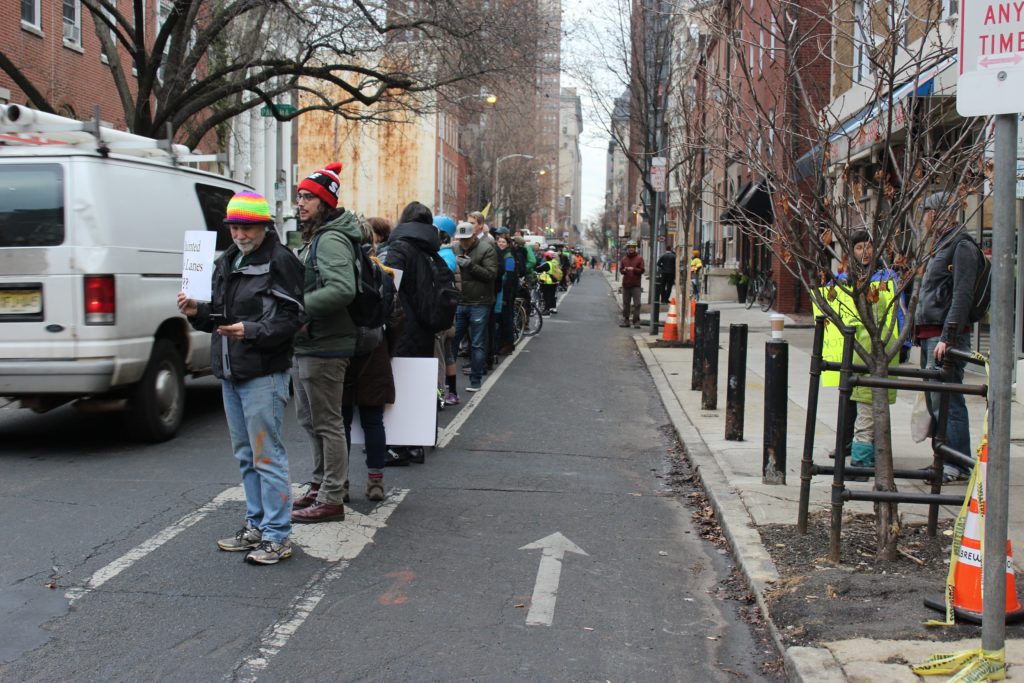
Spruce Street, Pine Street, Lombard, and 13th Street are some of the most highly traveled bike lanes in Philadelphia. It is important that these roads be upgraded from lines of paint to physical barriers, the past three weeks have clearly demonstrated the need. Call Councilmen Kenyatta Johnson and Mark Squilla to thank them for the small addition to the City’s protected bike lane network, and demand that they take further steps to rapidly install protected bike lanes on all of center city’s bike lanes.
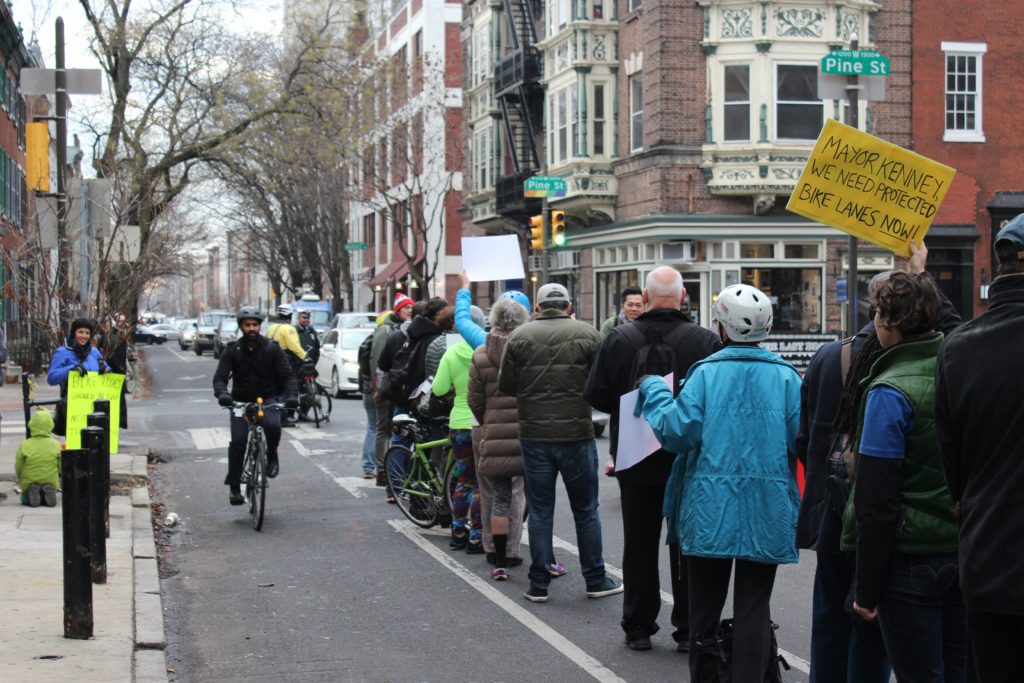
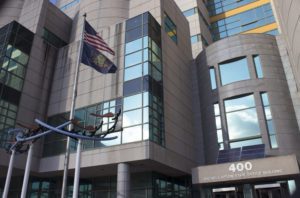
Clean Air Council and partners Moms Clean Air Force, Clean Water Action, and Earthworks joined residents affected by natural gas operations and a Harrisburg-area physician to speak at a press conference and Pennsylvania Department of Environmental Protection (DEP) air quality committee meeting.
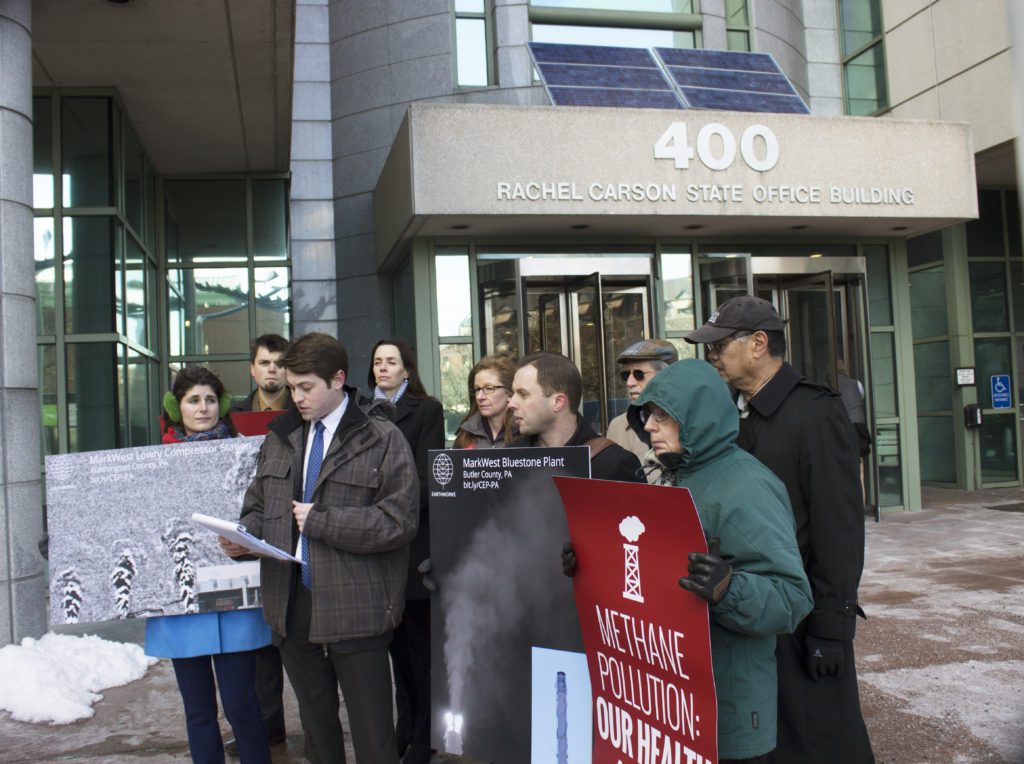
Clean Air Council Attorney Robert Routh reads his public comments during the press conference
Members from Clean Air Council and their partners spoke on the steps of the Rachel Carson State Office Building, just a few blocks from Governor Wolf’s office. You can watch excerpts from the press conference below.
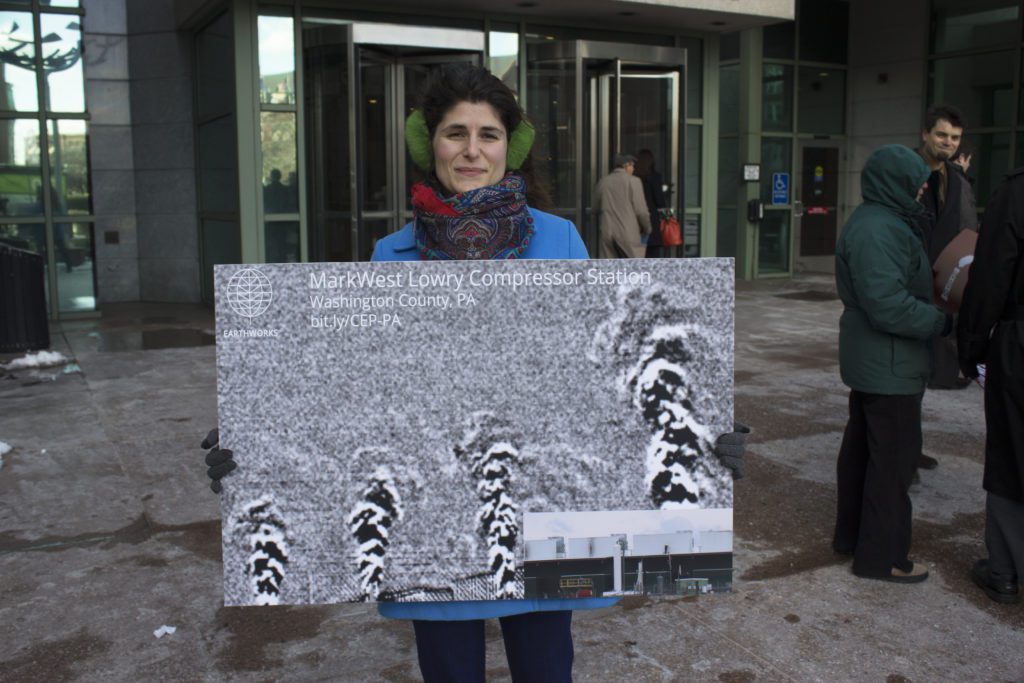
The comments were a continuation of advocacy that has spanned three years urging Governor Wolf to fulfill his campaign promises on methane controls for the natural gas industry. At the meeting, the DEP presented the final draft of permits to control methane pollution from new and modified natural gas operations.
The Department also presented concepts to control volatile organic compounds from existing natural gas operations, which are the bare minimum they are required to do under federal guidelines. You can read the full press release here.
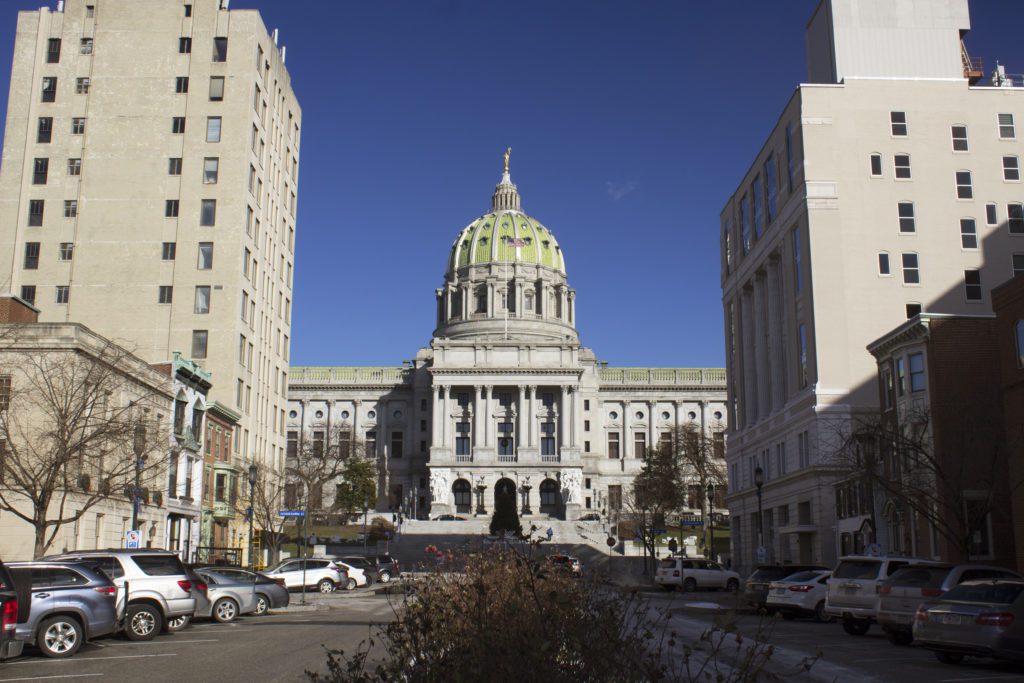
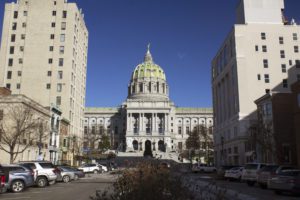
FOR IMMEDIATE RELEASE:
December 14, 2017
Contact:
Justin Wasser, Clean Air Council: 814-242-3156
Impacted Residents, Health Experts and Environmental Advocates Urge Gov. Wolf to Advance Methane Pollution Standards for the Natural Gas Sector
Harrisburg, PA (December 14, 2017)- The Pennsylvania Department of Environmental Protection (DEP) presented today the final draft of permits to control methane pollution from new and modified natural gas operations to the Air Quality Technical Advisory Committee (AQTAC). Residents affected by natural gas operations, as well as environmental and public health advocacy groups from across the Commonwealth, spoke at a press conference and at the AQTAC meeting during the public comment period. The comments were a continuation of advocacy that has spanned three years urging Governor Wolf to fulfill his campaign promises on methane controls. Wolf first promised to cut methane pollution from all new and existing gas operations on the campaign trail in 2014. He announced his methane reduction strategy in January 2016.
Environmental and public health advocacy groups and impacted residents were pleased to finally see progress made on the methane reduction plan at the meeting, but say that the Wolf administration must quickly finalize general permits and require companies to comply with them. Groups raised concerns about the administration’s proposed concepts for weaker rules covering existing source of methane pollution — a major departure from what the governor promised to do.
“While the progress being made on methane standards covering new natural gas sources is encouraging, the Wolf administration must move quickly to regulate existing sources in a similar way,” said Joseph Otis Minott, Executive Director and Chief Counsel of Clean Air Council. “What DEP is proposing to implement on existing sources is the bare minimum required by law. Governor Wolf must go well beyond the bare minimum in protecting the health of Pennsylvania citizens. We elected this governor based on his promises to be a leader in addressing methane pollution and climate change. Pennsylvanians deserve that leadership.”
Methane, a very potent greenhouse gas, is accompanied by air pollutants harmful to human health when it leaks from natural gas operations. Emissions in Pennsylvania continue to rise year after year.
The standards for new and modified sources will be implemented through two general permits, which allow for a streamlined approval process if industry operators agree to adhere to the permit conditions. One permit, GP-5A, covers unconventional gas wells and pigging operations and the other, GP-5, covers processing plants and compressor stations, including those on large transmission pipelines.
“Comprehensive methane rules for existing sources of pollution must be broader in scope and more stringent than the requirements found in EPA guidelines,” said Robert Routh, staff attorney for Clean Air Council. “These guidelines represent the national floor. Governor Wolf and DEP need to lead here and aim much higher for the sake of all Pennsylvanians.”
“The citizens of the commonwealth are suffering needlessly when we have the tools and technology available to greatly limit methane pollution and help clean our air,” said Dr. Robert Little, a family physician and president of the Harrisburg/Hershey chapter of Physicians for Social Responsibility. “It bears emphasizing that we need to clear our air of both toxic hydrocarbons and emissions of methane – reducing one kind of pollution without the other gets us nowhere.”
“Until these new source rules are applied to existing sources, people in my community and others dealing with methane pollution right now are still looking at an unfulfilled promise by Governor Wolf,” said Lois Bower-Bjornson, an impacted resident of Washington County, PA. “I am urging Governor Wolf to be that leader who campaigned on a promise of holding the natural gas industry accountable to the people of Pennsylvania and move forward on rules for existing sources of methane pollution and VOCs immediately.”
“Today, my children and 3,200 of their classmates are attending school next to a gas well pad roughly half a mile away exposing them to a known health and safety risk from oil and gas air pollution including emissions of methane and volatile organic compounds,” said Patrice Tomcik, a mother of two sons from Butler County and a Field Consultant with Moms Clean Air Force, a 1 million member strong organization. “Let’s be clear: This problem will not be resolved unless and until DEP addresses these toxic pollutants like benzene, as well as methane emissions.”

Philadelphia has the highest rate of traffic deaths per capita in the US. According to a National Highway Traffic Safety Administration report using data from 2015, six people for every 100,000 residents died in a traffic related incident. That’s over three times higher than Boston, and more than twice as high as New York City. Cyclists and pedestrians make up 45% of those killed in these traffic incidents.
It’s important to acknowledge these are not accidents, but instead preventable crashes that need to be addressed immediately. Sadly, action will come too late for Emily Fredricks who was killed by a private garbage truck as she rode in the bike lane along Spruce Street last week.
Cyclists who spend any amount of time commuting through Center City know this heavily trafficked area can be extremely dangerous. According to the Bicycle Coalition, a 2015 study counted 212 cyclists per hour passing through 13th and Spruce, just two blocks away from the crash. Emily’s death shows that painted bike lanes no longer meet the demands of increased bicycle traffic in this section, and protected bike lanes must be installed along Spruce and Pine Streets to prevent future fatalities.
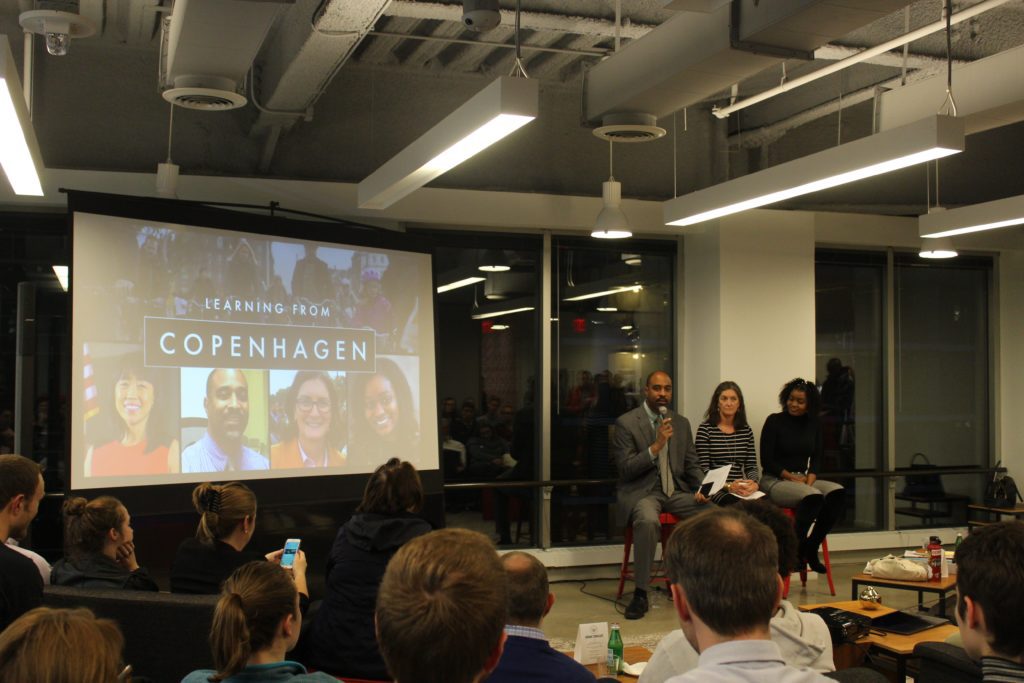
How to protect cyclists along Spruce and Pine was the first topic discussed at a recent public meeting hosted by 5th Square, Bicycle Coalition of Philadelphia, and Urban Consulate. A panel of guests including Michael Carroll, Deputy Managing Director of the Philadelphia’s Office of Transportation and Information Systems (OTIS), discussed a recent trip to Copenhagen where participants learned how that super bike friendly city operates.
However, after the panelists introduced themselves, Carroll felt the need to discuss the death of Emily Fredricks, and set the record straight on the city’s plan to add protected lanes along Spruce and Pine.
“There’s a couple things I’d like to see cleared up about that,” Carroll said. “Just to be clear there was never any point in design or plan to put any real kind of protection on Spruce and Pine.”
Carroll told the crowd of about 100 people that OTIS had been examining the possibility of protected lanes along those streets, but were in the extremely early stages of planning and securing grant money last year when news leaked to the public that they were looking into this.
“That information wasn’t really intended for broad public consumption but as things turned out it came out to the public that those were the two streets we were looking at, and that came back to the neighborhood,” Carroll said. “A lot of the folks in the neighborhood were upset.”
That outcry ultimately led to the plan being put on the backburner, and OTIS looked elsewhere for other areas that may have less resistance. According to Carroll, the administrative work to get a bike lane installed takes extremely long, and even if there was no resistance against Spruce and Pine, installation of protected lanes would not have begun until next year.
“From our perspective, we’ve got 2,500 miles of streets to look at, and there’s a lot of other candidates that were on that map that we felt like were better uses of our resources at that time to try and put protection in,” Carroll said. “Even if we had programmed those for installation, if we did find a clear path forward, this project would not have started until the Spring.”
Carroll did admit that more funding may have have helped avoid this tragedy.
“This is an instance where under more ideal circumstances, if money was available sooner, maybe we could have avoided a tragedy, but I don’t know that for a fact.” Prior to this incident, Philadelphia was securing funding and developed a plan to make sure money and ideas are available.
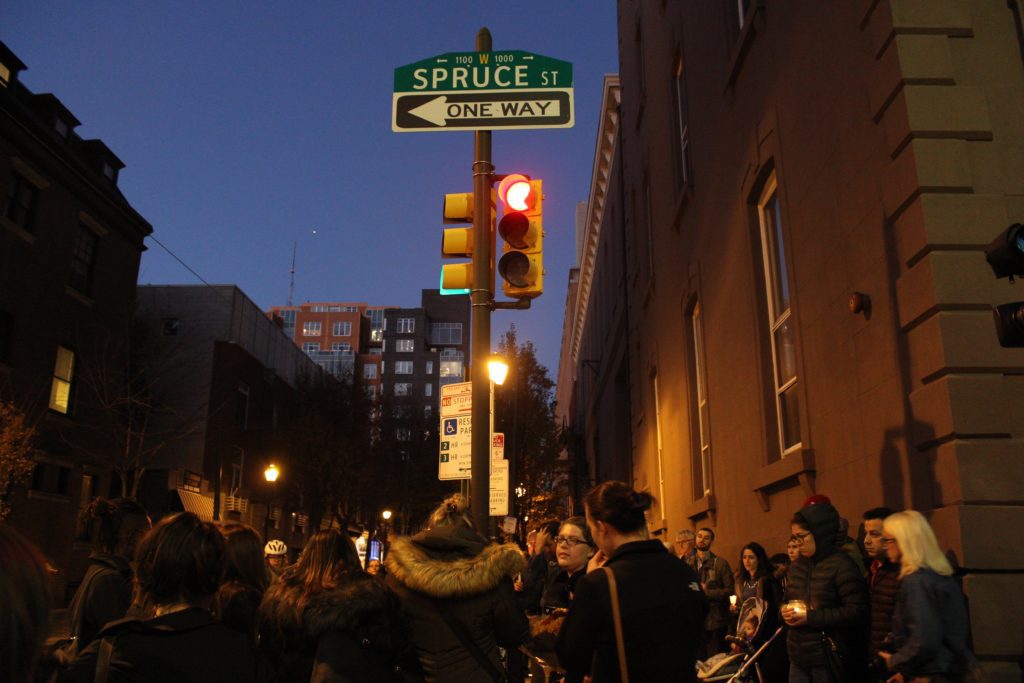
The city’s Vision Zero efforts include a plan to install 30 miles of protected bike lanes during Mayor Kenney’s administration. So far there are two miles. That leaves a lot of work to do, so the time is now for the Mayor’s office and City Council to move quickly on advancing these projects. The Vision Zero Task Force was created, and charged with forming a three year action plan. This plan was released earlier this fall, and you can read more about it here. The plan garnered plenty of local media attention and public support but so far little action from city government, specifically city council who since 2012 has had control over the implementation of protected bike lanes on city streets.
The last thing cyclists in Philly need is their safety in the hands of politicians, and that is exactly what is happening. The Office of Transportation and Infrastructure Systems (OTIS) needs to be in charge of these decisions, and make pedestrian and bicycle network development one of their key initiatives.
Perhaps a lack of funding for protected bike lanes is the problem? It’s not. In fact, funding has been secured on a state and federal level for pedestrian and cycling infrastructure. In March 2016, the city announced they had secured $2.67 million in federal funding with another $500,000 in local contributions to fund five projects under the “Transportation Alternatives Program” (TAP). The plan for cyclists is outlined in one of the projects. The press release states:
The final project, “Safe Spaces for Cyclists: Build a Protected Bike Network”, will include a mix of converting existing bicycle lanes into protected facilities and adding new protected bicycle lanes by adding flexible delineator posts to clearly separate vehicle and bicycle space in the right of way. The project also will include striping and signage in high priority bicycle corridors throughout the City.
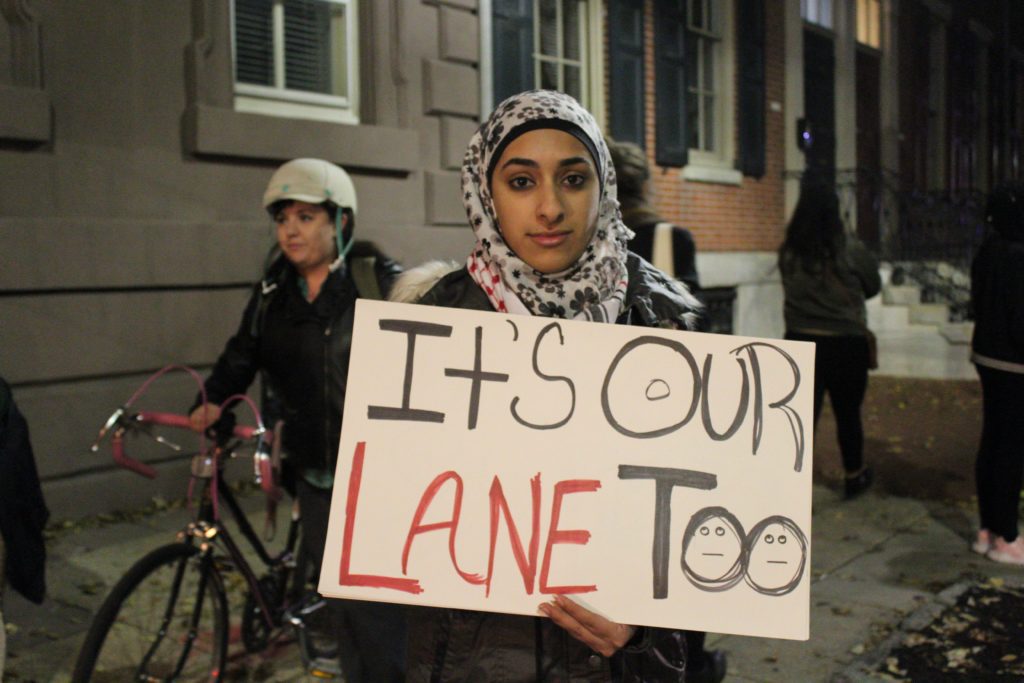
The money is there, the laws are written and plans have been drawn, so why are there still only two miles of protected bike lanes in Philadelphia? The problem is the overly politicized process of road safety. City council is not only guilty of inaction, but in some cases, council members work against the implementation of protected bike lanes under the guise of community outcry.
In 2011, Councilman Greenlee proposed a bill that would require city council to approve all new bike lanes. It was adopted in 2012, and since then council has actively worked against creating protected bike lanes throughout the city. Greenlee is still blocking a bike lane along 22nd street that was proposed in 2014. Councilwoman Blackwell, seems less supportive of the protected bike lane on Chestnut St in West Philadelphia, and recently told the Inquirer, “All I do is get complaints about the lack of access to Chestnut Street.”
Over the summer, Councilman Johnson wrote a letter to OTIS rejecting the planned protected bike lanes on South and Lombard Streets in West Center City. According to the Bicycle Coalition of Philadelphia, residents were concerned that they would not be able to pull into the bike lane to unload their vehicles.
Even the very stretch of Spruce St where Emily was killed has had a protected bike lane proposed and discussed publicly since last December at a Washington Square West Civic Association meeting. Public outcry over convenience has seemingly put the project on the shelf, and the city isn’t guaranteeing protected bike lanes will ever be installed along Spruce or Pine streets. Shortly after Emily’s death, the bike lane along Spruce Street was re-striped. This is simply too little too late, and still allows motorists to cross into the bike lane. City council must take the politics out of protected bike lanes, and start protecting the lives of people who choose to commute by bike.
Please take a moment to write or call your councilperson today. Tell them how important it is to you that they move forward on protected bike lanes, even at the expense of convenience for motorists. Explain that this is literally a matter of life and death in some cases, and you expect quick action from them. Do this especially if you are in Councilman Johnson or Councilman Squilla’s districts. Contact information to city council can be found here.
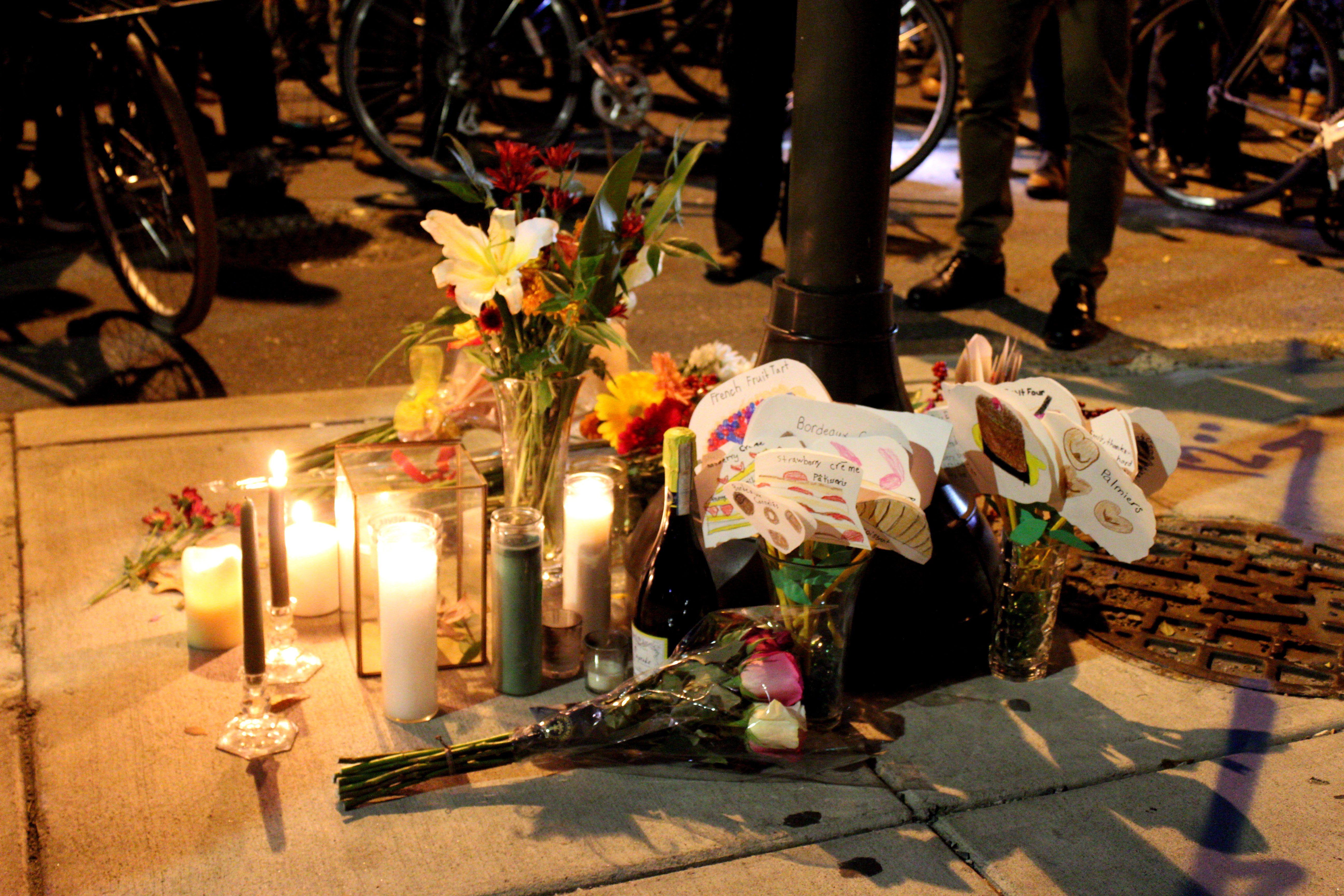
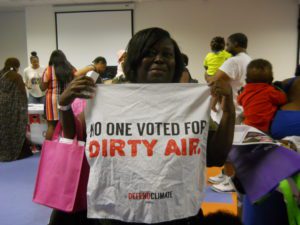
[Nov. 06, 2017-PHILADELPHIA] — On behalf of Clean Air Council and two Pennsylvania children, Hausfeld filed suit today in the Eastern District of Pennsylvania against the federal government to prevent it from rolling back policies, programs, laws, rules, and regulations previously in place to address and ameliorate climate change and its consequences. This pro bono litigation focuses on the federal government’s knowledge (dating back over fifty years) that climate change presents a clear and present danger to life, and represents an urgent and potentially irreversible threat to human societies and the planet. You can read the full complaint here.
The United States has experienced a steady increase in extreme weather events caused by climate change, as exemplified most recently by the devastating impact of Hurricanes Harvey and Irma, and the October California wildfires. If not adequately addressed, climate change will cause human deaths, shorten human life spans, result in widespread damage to property, threaten human food sources, drastically affect human air quality, and dramatically alter the planet’s ecosystem to the detriment of the plaintiffs in this case, their children and grandchildren, and all future generations.
The federal government has relied on junk science to implement reckless climate change policies in the face of indisputable U.S. and international scientific consensus. It is the government’s responsibility to protect the lives and welfare of citizens and the life-sustaining resources they depend on. These acts of deliberate indifference are increasing U.S. contributions to climate change, thereby increasing the frequency and intensity of its life-threatening effects, and violating the constitutional rights of all U.S. citizens.
Plaintiffs are leading Philadelphia environmental nonprofit Clean Air Council and two child plaintiffs who have been personally impacted by climate change. The Federal Government Defendants include President Donald Trump, the Department of Energy, Secretary Rick Perry, the Environmental Protection Agency, and Administrator Scott Pruitt.
Clean Air Council Executive Director and Chief Counsel Joseph Minott said: “We will not stand idly by while President Trump and his agencies raze crucial environmental protections, ignore climate science, dispute well-documented facts and force future generations of Americans to suffer the consequences of this administration’s reckless choices and ignorant policies. We must hold the federal government accountable for the long-term environmental harm that is propagating under its direction. It’s time to fight back.”
Scientists refer to climate change as the most important issue of our time. Human contribution to climate change, which exacerbates its effects, has reached a critical moment, the consequences of which are potentially irreversible. Hausfeld Chairman Michael D. Hausfeld stated: “By deliberately engaging in this rollback of climate policies and programs, the government is affirmatively endangering the lives and welfare of its citizens.”
This lawsuit comes on the heels of the federal government’s release of the National Climate Assessment, which, in stark contrast to the administration’s environmental policies, affirms that climate change is almost entirely caused by human action and is a growing threat to the United States.
Hausfeld attorneys working on this case include Michael D. Hausfeld, Seth R. Gassman, Katie R. Beran, Braden Beard, and Michaela Spero.
For further information or to arrange interviews please contact:
Deborah Schwartz
Media Relations
(240) 355-8838
deborah@mediarelationsinc.com
Jamie Kloss
Braithwaite Communications
(215) 564-3200 ext. 162
jamie@gobraithwaite.com
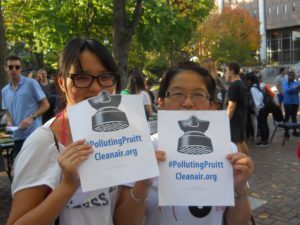
NOTES TO EDITORS
About Hausfeld
Hausfeld is a leading global law firm with offices in Berlin, Boston, Brussels, Düsseldorf, London, New York, Philadelphia, San Francisco, and Washington, DC. The firm has a broad range of complex litigation expertise, particularly in antitrust/competition, financial services, sports and entertainment, environmental, mass torts, consumer protection, and human rights matters, often with an international dimension. Hausfeld aims to achieve the best possible results for clients through its practical and commercial approach, avoiding litigation where feasible, yet litigating robustly when necessary. Hausfeld’s extensive experience with alternative and innovative fee models offers clients a diverse menu of engagement options and maximum flexibility in terms of managing their cost exposure.
Hausfeld is the only claimants’ firm to be ranked by the Legal 500 and Chambers & Partners as a top tier firm in private enforcement of antitrust/competition law in both the United States and the United Kingdom. For more information about the firm, including recent trial victories and landmark settlements, please visit: www.hausfeld.com.
About Clean Air Council
Clean Air Council is a member-supported, non-profit environmental organization dedicated to protecting everyone’s right to breathe clean air. The Council is headquartered in Philadelphia and works through public education, community organizing, advocacy, and government oversight to ensure enforcement of environmental laws. For more information, please visit www.cleanair.org.
